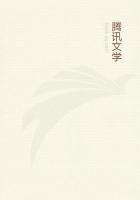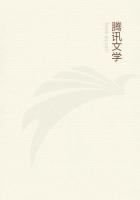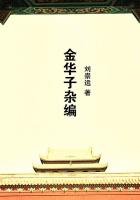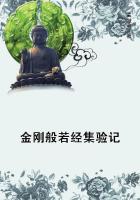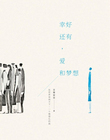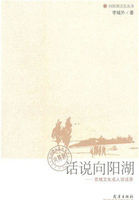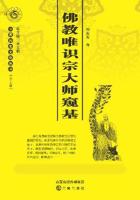In comparison with Europe America has the advantages that come from being more completely in the newer current of things.It is nearer, perhaps, to the spirit of the coming order, and so perhaps more likely, in due time, to give it adequate utterance in art.Another benefit of being new is the attitude of confidence that it fosters.If America could hardly have sustained the assured mastery of Tennyson, neither, perhaps, could England an optimism like that of Emerson.In contrast to the latter, Carlyle, Ruskin and Tolstoi梡rophets of an older world 梐re shadowed by a feeling of the ascendancy and inertia of ancient and somewhat decadent institutions.They are afraid of them, and so are apt to be rather shrill in protest.An American, accustomed to see human nature have pretty much its own way, has seldom any serious mistrust of the outcome.Nearly all of our writers梐s Emerson, Longfellow, Lowell, Whittier, Holmes, Thoreau, Whitman, even Hawthorne梙ave been of a cheerful and wholesome personality.
On the other hand, an old civilization has from its mere antiquity a richness and complexity of spiritual life that cannot be transplanted to a new world.The immigrants bring with them the traditions of which they feel in immediate need, such as those necessary to found the state, the church and the family; but even these lose something of their original flavor, while much of what is subtler and less evidently useful is left behind.We must remember, too, that the culture of the Old World is chiefly a class culture, and that the immigrants have mostly come from a class that had no great part in it.
With this goes loss of the visible monuments of culture inherited from the past梐rchitecture, painting, sculpture, ancient universities and the like.Burne-Jones, the English painter, speaking of the commercial city in which he spent his youth, says:..."if there had been one cast from ancient Greek sculpture, or one faithful copy of a great Italian picture, to be seen in Birmingham when I was a boy, I should have begun to paint ten years before I did...even the silent presence of great works in your town will produce an impression on those who see them, and the next generation will, without knowing how or why, find it easier to learn than this one does whose surroundings are so unlovely."*Nor is American life favorable to the rapid crystallization of a new artistic culture; it is too transient and restless; transatlantic migration is followed by internal movements from east to west and from city to country;while on top of these we have a continuous subversion of industrial relations t Another element of special confusion in our life is the headlong mixture of races, temperaments and traditions that comes from the new immigration, from the irruption by millions of peoples from the south and east of the Old World.If they were wholly inferior, as we sometimes imagine, it would perhaps not matter so much; but the truth is that they contest every intellectual function with the older stock, and, in the universities for instance, are shortly found teaching our children their own history and literature.They assimilate, but always with a difference, and in the northern United States, formerly dominated by New England influences, a revolution from this cause is well under way.It is as if a kettle of broth were cooking quietly on the fire, when some one should come in and add suddenly a great pailful of raw meats, vegetables and spices梐 rich combination, possibly, but likely to require much boiling.That fine English sentiment that came down to us through the colonists more purely, perhaps, than to the English in the old country, is passing away梐s a distinct current, that is條ost in a flood of cosmopolitan life.Before us, no doubt, is a larger humanity, but behind is a cherished spirit that can hardly live again; and, like the troy who leaves home, we must turn our thoughts from an irrevocable past and go hopefully on to we know not what.
In short, our world lacks maturity of culture organization.What we sometimes call梩ruly enough as regards its economic life梠ur complex civilization, is simple to the point of poverty in spiritual structure.We have cast off much rubbish and decay and are preparing, we may reasonably hope, to produce an art and literature worthy of our vigor and aspiration, but in the past, certainly, we have hardly done so.
Haste and the superficiality and strain which attend upon it are widely and insidiously destructive of good work in our day.No other condition of mind or of society?not ignorance, poverty, oppression or hate梜ills art as haste does.Almost any phase of life may be ennobled if there is only calm enough in which the brooding mind may do its perfect work upon it; but out of hurry nothing noble ever did or can emerge.In art human nature should come to a total, adequate expression; a spiritual tendency should be perfected and recorded in calmness and joy.But ours is, on the whole, a time of stress, of the habit of incomplete work; its products are unlovely and unrestful and such as the future will have no joy in.
The pace is suited only to turn out mediocre goods on a vast scale.
It is, to put the matter otherwise, a loud time.The newspapers, the advertising, the general insistence of suggestion, have an effect of din, so that one feels that he must raise his voice to be heard, and the whispers of the gods ate hard to catch.Men whose voices are naturally low and fine easily lose this trait in the world and begin to shout like the rest.That is to say, they exaggerate and repeat and advertise and caricature, saying too much in the hope that a little may be heard.Of course, in the long run this is a fatal delusion; nothing will really be listened to except that whose quiet truth makes it worth hearing; but it is one so rooted in the general state of things that few escape it.Even those who preserve the lower tone do so with an effort which is in itself disquieting.

